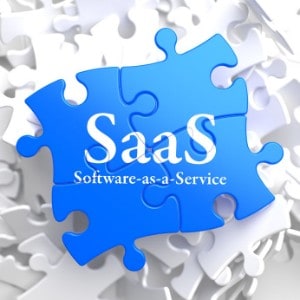


Cloud computing has taken over the IT industry. Within the next few years, most business workloads will be hosted in the cloud per SaaS agreements between providers and customers.
As a business owner, it is likely you already utilize some apps that are considered “software as a service” (SaaS). It is worthwhile to know what to look for as you negotiate and enter into SaaS agreements so that you can give your business every advantage in the industry.
You may be wondering, “will I even have any chance to negotiate these contracts or am I just destined to sign whatever the SaaS providers require?”
As an experienced software lawyer, my answer is an emphatic, “Yes! You can (and should) negotiate better SaaS Agreements!”
Read on to learn the ins-and-outs of SaaS contracts, including how to ensure you’re getting the best possible terms for your business.
The key difference between SaaS programs is that SaaS apps are stored on a cloud platform and not hosted on a local server, desktop computer, or tablet at your place of business.
Updates and upgrades are usually included in SaaS subscriptions (and more affordable than paying a trained technician to come to your office and make changes to your software internally).
SaaS providers also typically bear the brunt of disaster recovery. Because they host the software, they may be responsible for data breaches or losses (unless disclaimed in your SaaS contract).
On the other hand, it is a little easier to extract data from an internal server or desktop computer’s hard drive if you decide to make the switch to a different software provider.
Also, internally-hosted software is usually more customizable to your needs. SaaS subscribers have to rely on the service, uptime, and bandwidth of the provider (which could be great or poor, depending on the provider). Ultimately, SaaS programs are more affordable, but you will give up some degree of control over your business’s software by utilizing this type of service.
Since SaaS is becoming ubiquitous in the software industry, the agreements have grown as varied and diverse as the software itself. SaaS agreements always involve a licensing of the software (granting you the right to use someone else’s intellectual property), but the terms vary widely from provider to provider.
Many SaaS providers offer a subscription (paid monthly or annually) and your access to the software terminates when your subscription ends. You may also pay a single license fee for permanent access to the software as long as you wan to use it. There are also hybrid SaaS agreements, which include one-time licenses for selected products and a subscription for others. If you are considering a hybrid SaaS contract, make sure your agreement clearly identifies which products or services are subject to which terms (license or subscription) to prevent confusion.
Naturally, SaaS providers want to maintain ownership over the code that makes the software function, but you’ll want to make sure you retain ownership over data you add to the software in the event you want to transition to a different service provider down the road.
Yes! Whether you are negotiating a SaaS agreement with a software provider or your business will be providing SaaS to other subscribers, you will have room to tailor contracts that can protect your company.
These agreements are not one-size-fits all and will vary greatly depending on the needs of both providers and users. Of course, the larger your business, the more negotiating power you’ll have for customizing the SaaS contract.
Providers may want to negotiate contracts to stay competitive and keep large enterprise clients satisfied, while users have an interest in negotiating contracts that are most customized to their specific businesses.
Even software as a service providers will likely find themselves in a position where they need to utilize SaaS from another provider. No matter what position you find yourself in, you will need to know the basics so that you can negotiate software as a service contracts that meet your needs.
Your SaaS agreement should detail all costs, including whether payments will be upfront, monthly or by some other method. You will also want to cover whether updates will be included, and if they will come at an additional cost.
Determine whether there will be any restrictions on the software, such as how many people will be permitted to use the SaaS, whether any user actions will invalidate warranty, or there are any actions that could lead to termination of the contract (like copyright infringement, for instance).
Last, but not least, don’t forget to address ownership of intellectual property as previously discussed.
Bottom line: you do not have to let tech giants and SaaS providers dictate the terms of your SaaS agreements. Getting informed is the first step to making savvy software choices for your business.